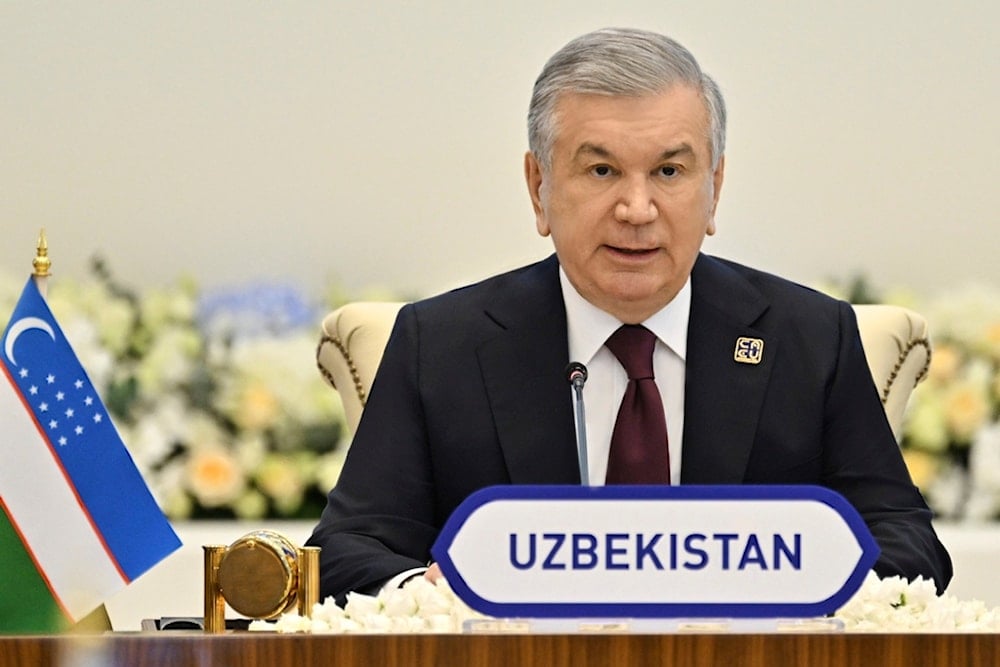Uzbek president proposes 'Community of Central Asia' regional bloc
Shavkat Mirziyoyev has proposed forming the "Community of Central Asia," a regional bloc aimed at boosting economic and political cooperation.
-

Uzbekistan's President Shavkat Mirziyoyev addresses the first summit between the leaders of the EU and the five countries of Central Asia in Samarkand, Uzbekistan, on Friday, April 4, 2025 (Uzbekistan's Presidential Press Office via AP)
Uzbek President Shavkat Mirziyoyev has proposed establishing a regional cooperation organization he called the "Community of Central Asia," aimed at deepening economic, political, and environmental cooperation among the region’s five post-Soviet states.
The proposal was made on Sunday during a leadership summit in Tashkent, attended by the presidents of Kazakhstan, Kyrgyzstan, Tajikistan, Turkmenistan, and Azerbaijan.
Mirziyoyev suggested transforming the existing informal meetings between Central Asian leaders into an official Central Asian regional bloc. He said the creation of the Community of Central Asia would help promote deeper integration in a region home to more than 80 million people.
The Uzbek president emphasized that formalizing cooperation would not only boost economic integration in Central Asia but also strengthen coordination on security and environmental challenges shared across borders.
Read more: Kazakhstan to join 'Abraham Accords', Trump announces
Integration aims to boost economy, security, and environment
While the proposal did not receive an immediate public response from the other leaders, all five countries have, in recent years, voiced support for greater regional integration. Historically, political friction and border disputes have hindered unity in Central Asia, but recent signs point toward improved collaboration.
Earlier this year, Kyrgyzstan and Tajikistan resolved a long-standing border conflict that had claimed hundreds of lives, a significant step toward regional stability.
West, China compete for influence in resource-rich region
Rich in natural resources, Central Asia has long been economically and politically linked to Russia, but is now attracting increasing attention from Western powers. China also maintains strong commercial ties to the region, making Central Asia a growing focal point in global geopolitical competition.
Earlier this month, all five Central Asian presidents traveled to Washington together for talks with US President Donald Trump, underscoring growing ties with the West.
Read more: EU announces 'new era' in relations with Central Asia
Azerbaijan added to Central Asia regional dialogue
In a separate development, President Mirziyoyev announced that the five Central Asian states had jointly agreed to include Azerbaijan, a South Caucasus nation not traditionally classified as part of Central Asia, in future regional discussions.
The decision to welcome Azerbaijan into Central Asia talks reflects a broader ambition to expand regional dialogue beyond geographic definitions, rooted instead in shared economic and strategic interests.
Read more: 'Israel' attempts to expand influence in Central Asia: Reports

 3 Min Read
3 Min Read










